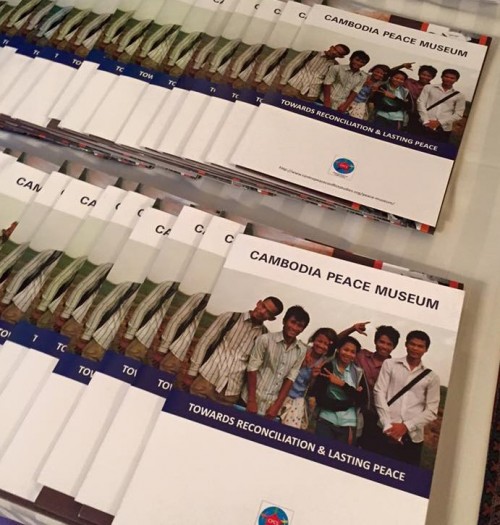New way to support Peace Museum
MUSEUM DIARY: December 8, 2015
Hosting our first event in New York created a great opportunity to reconnect with long-time friends and colleagues who have known and worked alongside CPCS co-founder and Peace Museum visionary Soth Plai Ngarm and CPCS Executive Director Emma Leslie in Cambodia in the 1990s.
Some of the people who joined us for The Iliad included the current director of the East West Management Institute (EWMI) teamj, who were inspired to make a contribution to the Cambodia Peace Museum.
When we met with them the next day, they proposed establishing a link between the Centre for Peace & Conflict Studies (CPCS) and EWMI to access their tax-exempt, non-profit status for US-based fundraising, and for people to make online donations.
This offer to accept donations on our behalf helped us to address a question that had been challenging us for months: How to create easier access for online donations so that friends and networks across the globe can easily make a contribution, as well as to be able to offer the tax deductible status for those donations.
Filing for this status can be a time-consuming and an expensive process, especially for an organisation based in Cambodia like CPCS.
EWMI has made this generous offer as a commitment to support Cambodia as well as the Cambodia Peace Museum project. Our partnership with EWMI involves no payment or handling fees, other than a small processing fee from the donation site.
Funds then will be granted directly to CPCS, reducing the cost of individual transfers of funds to Cambodia and providing the tax deduction receipt to donors.
Nikki Singer is the Peace Museum Project Coordinator and writes the Museum Diary

